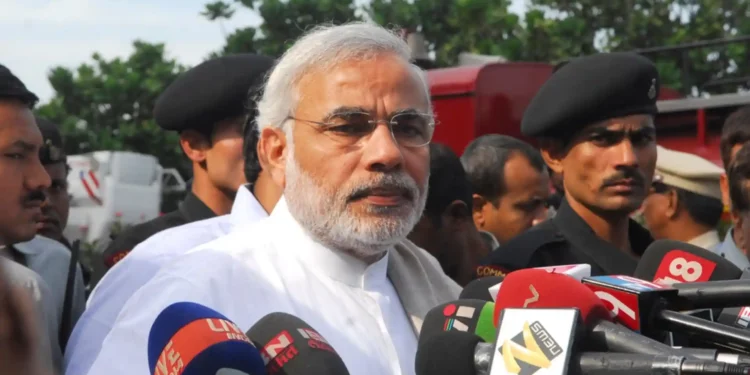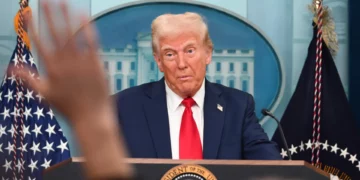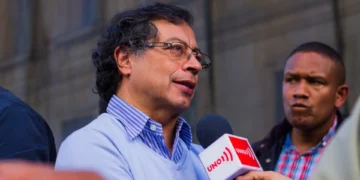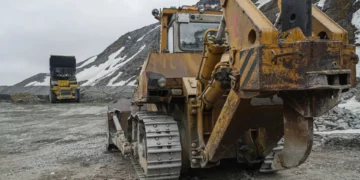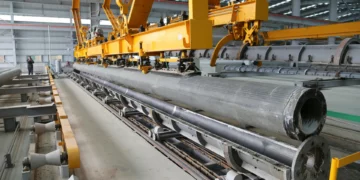To become the PM for a third time in a row, Modi’s Bharatiya Janatha Party has to win over two main allies in the region
Indian Prime Minister Narendra Modi is preparing for coalition negotiations after his party lost majority in the parliament. Now he has to rely on allies to form the government for the first time since he came to office ten years ago.
In order to become the PM for a third time in a row, Modi’s Bharatiya Janatha Party (BJP) has to win over two main allies in the region, although the two allies are famous for switching sides.
On Wednesday afternoon, the National Democratic Alliance (NDA), led by the Bharatiya Janata Party, is scheduled to convene in New Delhi.
Although the party fell short of the 272-seat majority on its own, official results released on Tuesday indicated that the coalition led by the BJP has enough seats to establish a government if it continues.
At his party’s headquarters, Modi declared victory for his alliance, telling jubilant supporters that the “NDA has won a mandate to form the government” for a third consecutive term. “We express our immense gratitude to all those who have placed their complete trust in the BJP and NDA,” he declared.
Irfan Nooruddin, a Georgetown University professor of Indian politics, said that the coalition partners would likely want a pound of flesh that would have an impact on policy. “I believe there will be a very serious reckoning for the BJP itself.”
The Indian National Congress (INC)-led opposition alliance is planned to assemble on Wednesday night in order to strengthen ties with its allies and even explore the possibility of creating a separate administration.
Tuesday was the worst day for Indian markets in almost four years as it became apparent that the election would be much closer than anticipated. Following the announcement of exit polls over the weekend that predicted Modi would easily win the lengthy, six-week election, markets reached a new high on Monday. The prime minister had boldly projected that his alliance would win a whopping 400 seats before voting began on April 19.
Now, in order to shift the balance of power in parliament, Modi needs to win over two influential NDA coalition members, who together hold about 30 seats. It’s uncertain whether the leaders of those two parties will support the opposition alliance or remain loyal to Modi given their track record of flipping allegiance. They only joined forces with him a few months ago. Support for Modi’s coalition was confirmed by a representative of the allies, the Telugu Desam Party in the southern state of Andhra Pradesh.
The opposition group, led by Rahul Gandhi of the Congress party, gained popularity by appealing to voters’ worries about rising living expenses, widespread unemployment, and India’s widening economic divide.
For the 73-year-old leader, who has been the face of the BJP’s election campaign and has essentially constructed the party around himself, the outcome is a startling letdown. A weak coalition government will probably make it impossible for Modi to enact strict economic reforms or advance his Hindu nationalist agenda, if he returns to power. This raises concerns about Modi’s own future as prime minister as well.
This poor showing is Modi’s first significant loss in the national polls. Before the election, he appeared invincible thanks to support from one of the fastest-growing economies in the world and the accomplishment of important pledges that catered to the majority of Hindu voters in India, such as the construction of a temple on the location of a mosque that had been demolished 500 years before.
Following the first of seven rounds of voting, indications pointed to disaster for Modi. Due to a decline in voter turnout, a widespread mobilization campaign was launched, and Modi took the opportunity to sharpen his rhetoric and incite his Hindu nationalist base by disparaging Muslims and criticizing the opposition’s welfare programs.
The Hindu nationalist beliefs that are central to the BJP agenda are not shared by many of the alliance partners of the party. This implies that the BJP may have to temper some of its polarizing language and give up its aspirations to more forcefully transform India into a blatantly Hindu country.
In addition, a weakened coalition would make the BJP give cabinet positions and other concessions to alliance partners while it might find it difficult to carry out the kind of significant economic reforms that are required to spur growth.
India should continue on a mainly favorable growth trajectory, even in the event of a reduced mandate or a change in administration. India’s $3.5 trillion economy has the potential to overtake China as the world’s largest contributor to growth over the next five years, according to some experts. Business executives ranging from Elon Musk to Jamie Dimon have praised India’s prospects in this regard.


